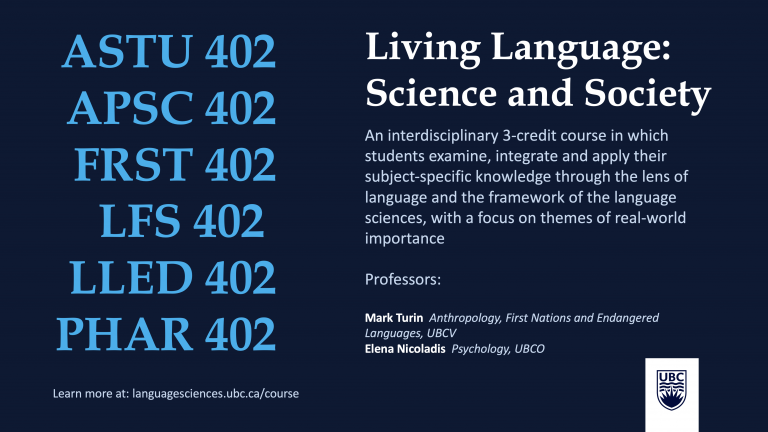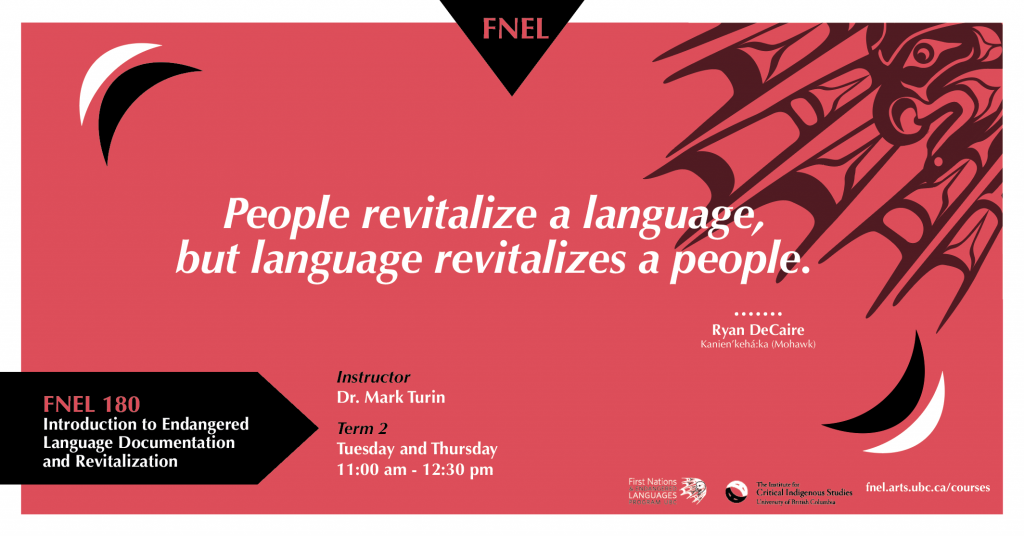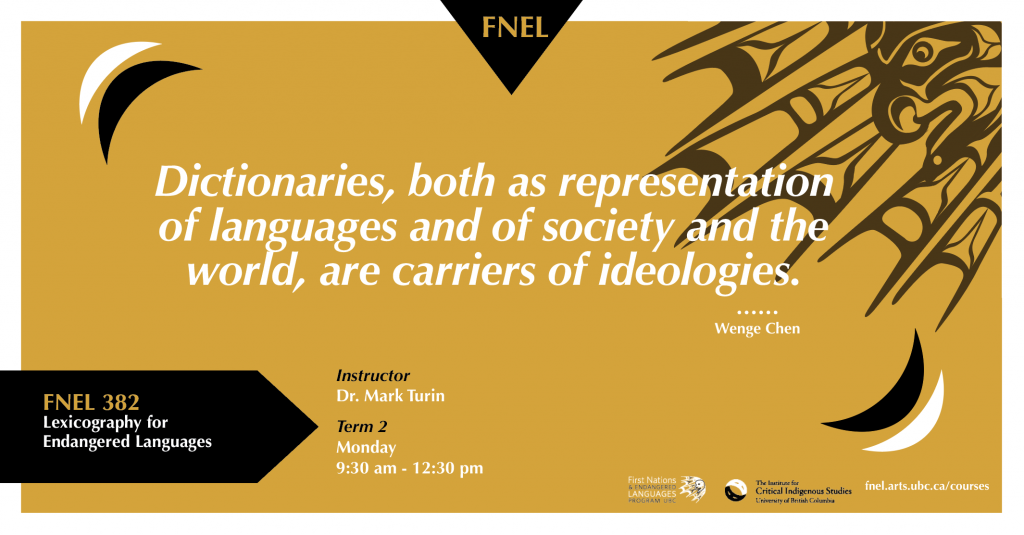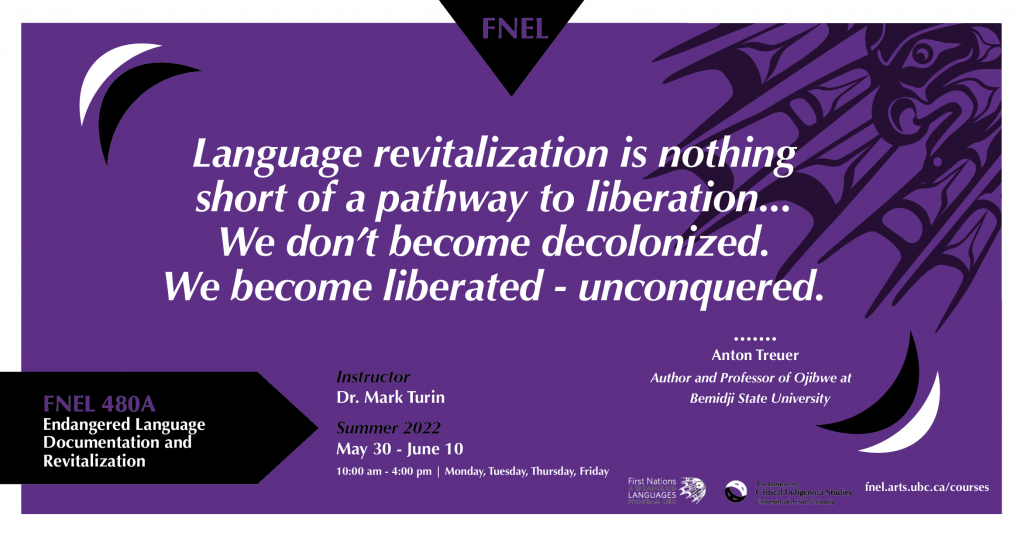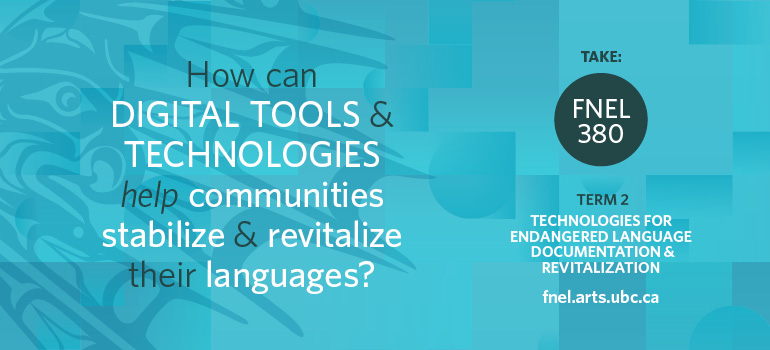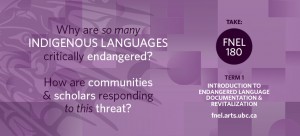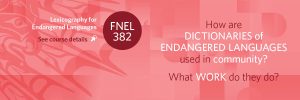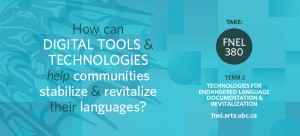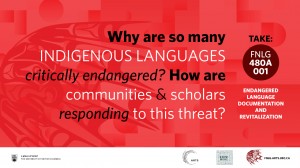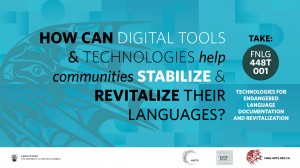In Academic Year 2025-2026, I am teaching ANTH 309 (Ethnography of the Himalaya: Diversity & Development) and FNEL 482, a class designed to support students seeking to deepen their understanding, experience of or competence in an Indigenous language. Together with the instructor, and with peers in class, students will work to outline their learning goals, identify language resources and relevant community organizations and develop a plan for sustained and deeper engagement with language in the course of the term.
In Winter Term 1, 2023 (September – December 2023), I will be teaching Living Language: Science and Society:
In the Winter Term 2, 2023 (January – April 2024), I will be teaching a pilot course in First Nations and Endangered Languages, FNEL 482, designed to support students seeking to deepen their understanding, experience of or competence in an Indigenous language. Together with the instructor, and with peers in class, students will work to outline their learning goals, identify language resources and relevant community organizations and develop a plan for sustained and deeper engagement with language in the course of the term.
In Winter Term 1, 2020 (September – December 2020), I taught Introduction to Endangered Language Documentation and Revitalization (FNEL 180) and Lexicography for Endangered Languages (FNEL 382).
In Winter Term 2, 2021 (January – April 2022), I will be teaching Introduction to Endangered Language Documentation and Revitalization (FNEL 180) and Lexicography for Endangered Languages (FNEL 382).
In the Summer Term 2022 (end of May and early June), I will be teaching Endangered Language Documentation and Revitalization (FNEL 480)
In Winter Term 1, 2020 (September – December 2020), I taught Introduction to Endangered Language Documentation and Revitalization (FNEL 180) and Lexicography for Endangered Languages (FNEL 382).
In Winter Term 1, 2019 (September – December 2019), I taught Introduction to Endangered Language Documentation and Revitalization (FNEL 180) and Living Language: Science and Society (APSC 402, ASTU 402, FRST 402, LFS 402, LLED 402, and PHAR 402).
I was on sabbatical study leave in Winter Term 2, January-June, 2020.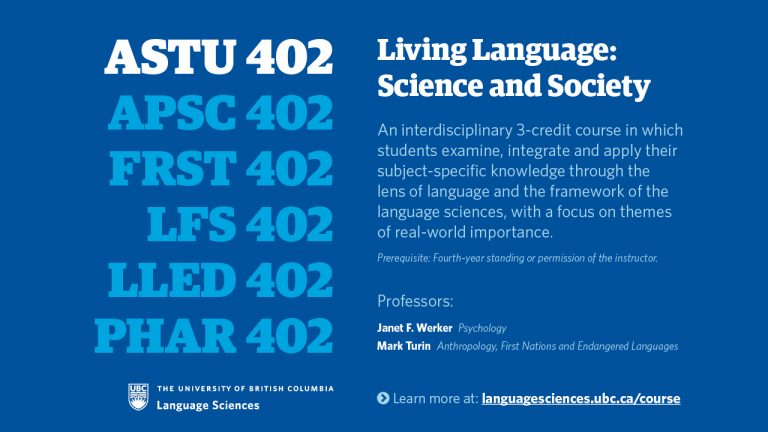
In Academic Year 2018-2019, I taught the first University-wide course in Language Sciences, Living Language: Science and Society in Term 1. In this interdisciplinary 3-credit ‘transition-out’ course, 3rd and 4th-year students examined, integrated and applied their subject-specific knowledge through the lens of language and the framework of the language sciences, with a focus on themes of real-world importance. The course is entitled Living Language: Science and Society, cross-listed as APSC 402, ASTU 402, FRST 402, LFS 402, LLED 402, and PHAR 402. I co-taught the class with my inspiring colleague Professor Janet Werker (Psychology).
In Academic Year 2017-2018, I taught two courses in the First Nations and Endangered Languages Program at the University of British Columbia, one in Term 1 (Fall) and one in Term 2 (Spring):
Term 1: FNEL 180: Introduction to Endangered Language Documentation and Revitalization
Foundational concepts in the critical study of cultural, historical, social, and political factors that impact language loss, retention, and revival. Introducing strategies and practical methodologies for collaborative, interdisciplinary, community-based documentation and revitalization projects for First Nations and Indigenous languages. 3 credits.
Term 2: FNEL 380: Technologies for Endangered Language Documentation and Revitalization
Digital tools for endangered language documentation, conservation, and revitalization. Overview of best practices, introduction to community engagement and capacity-building, protocols and ethics, project design, cultural context, orthographies, use of audio, video and still photography, data management, archiving and web publishing. 3 credits.
In Academic Year 2016-2017, I taught two courses at the University of British Columbia, one in Term 1 (Fall) and one in Term 2 (Spring):
Term 1: FNEL 180: Introduction to Endangered Language Documentation and Revitalization
Foundational concepts in the critical study of cultural, historical, social, and political factors that impact language loss, retention, and revival. Introducing strategies and practical methodologies for collaborative, interdisciplinary, community-based documentation and revitalization projects for First Nations and Indigenous languages. 3 credits.
Term 2: FNEL 382: Lexicography for Endangered Languages
Foundational concepts in the discipline of compiling, editing, managing and hosting dictionaries, also known as lexicography. Special focus on the technical and ethical considerations for community-based lexicography projects for endangered and BC First Nations languages.
In Academic Year 2015-2016, I taught two courses at the University of British Columbia, one in Term 1 (Fall) and one in Term 2 (Spring):
Term 1: FNEL 180: Introduction to Endangered Language Documentation and Revitalization
Foundational concepts in the critical study of cultural, historical, social, and political factors that impact language loss, retention, and revival. Introducing strategies and practical methodologies for collaborative, interdisciplinary, community-based documentation and revitalization projects for First Nations and Indigenous languages. 3 credits. Click here to register.
Term 2: FNEL 380: Technologies for Endangered Language Documentation and Revitalization
Digital tools for endangered language documentation, conservation, and revitalization. Overview of best practices, introduction to community engagement and capacity-building, protocols and ethics, project design, cultural context, orthographies, use of audio, video and still photography, data management, archiving and web publishing. 3 credits.
In Academic Year 2014-2015, I taught two courses at the University of British Columbia, one in Term 1 (Fall) and one in Term 2 (Spring):
Term 1: FNLG 480A.001: Endangered Language Documentation and Revitalization.
Critical study of the historical, social, cultural, political, and economic factors impacting on language loss, retention, and revival. While the principal focus is the endangered status of British Columbia’s First Nations languages, these issues are contextualized in the global context of massive language extinction and the erosion of complex systems of human knowledge. Research on and application of methodologies for collaborative, transdisciplinary, community-based documentation and revitalization humanity’s Indigenous linguistic heritage.
Term 2: FNLG 448T.001: Technologies for Endangered Language Documentation and Revitalization.
Students learned about digital tools for endangered language documentation, conservation, and revitalization. Focus on protocols, ethics, cultural context, community engagement, capacity-building. Survey of best practices in project design; orthographic representation; data management, archiving, web publishing; use of audio, video, and still photography.
Previously, at Yale, I taught the following classes:
Academic Year 2013-2014
Spring 2014
Himalayan Languages and Cultures
South Asian Studies (SAST) 369/569 & Anthropology (ANTH) 353/553
Fall 2013
Himalayan Collections at Yale
Anthropology (ANTH) 317, History of Art (HSAR) 479, South Asian Studies (SAST) 363 and East Asian Studies (EAST) 363
Academic Year 2012-2013
Spring 2013
Himalayan Languages and Cultures
South Asian Studies (SAST) 369/569 & Anthropology (ANTH) 353/553
Fall 2012
Himalaya through Film and Text
South Asian Studies (SAST) 372/672; Anthropology (ANTH) 338 and Film Studies (FILM) 329
